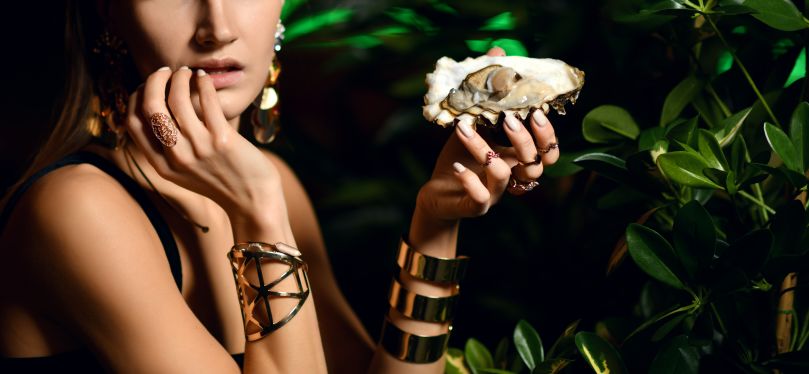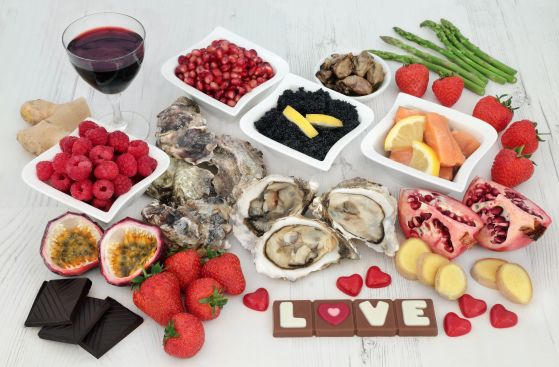Top 3 Aphrodisiac Foods That Boost Your Libido
This article article taken from Healthline
An aphrodisiac is a food or drug that arouses sexual instinct, brings on desire, or increases sexual pleasure or performance. A myriad of pharmaceutical drugs are available and marketed specifically for their libido-boosting effects. However, some individuals prefer natural alternatives, as they’re generally safer and tend to have fewer side effects.
It’s worth noting that many aphrodisiacs do not have the backing of scientific evidence, and some natural products may have negative effects. If you’re thinking of trying a supplement, talk to your doctor first.
1. Maca
Maca is a sweet root vegetable with several health benefits.
In South America, people commonly use it to boost fertility, and its nickname is “the Peruvian Viagra.” It grows mainly in the mountains of central Peru and is related to cruciferous vegetables, including broccoli, cauliflower, kale, and cabbage
Animal studies found increases in libido and erectile function in rodents after consuming maca. Four other studies suggest it may boost libido in humans, too.
One small study has indicated that maca may help reduce the loss of libido that commonly occurs as a side effect of certain antidepressant drugs.
Most studies provided 1.5–3.5 grams of maca per day for 2–12 weeks.
Participants generally tolerated these intakes well and experienced few side effects. However, more studies are needed to determine safe dosages and long-term effects.
2. Tribulus
Tribulus terrestris, also known as bindii, is an annual plant that grows in dry climates.
Producers of supplements often claim that it can boost libido.
Studies have suggested that it may raise testosterone levels in some animals, but science hasn’t proved that it can increase testosterone levels or fertility in humans.
Limited evidence suggests it may help boost sexual function and desire in males and females.
3. Ginkgo biloba
Ginkgo biloba is an herbal supplement derived from one of the oldest species of trees — the Ginkgo biloba tree.
Traditional Chinese medicine uses it to treat many ailments, including depression and poor sexual function.
Ginkgo biloba is said to act as an aphrodisiac by helping relax blood vessels and increase blood flow
Nevertheless, studies have produced mixed results.
In 1998, for example, a small study reported that ginkgo biloba reduced the loss of libido that antidepressant use caused in around 84% of participants.
Both male and female participants said they experienced increased desire, excitement and ability to orgasm after consuming 60–240 mg of the supplement daily, although effects seemed stronger in female participants. However, this was a low-quality study, and its findings may not be reliable
A more rigorous follow-up study was published in 2004. This study found no improvements in a similar group of participants who took ginkgo biloba
Ginkgo biloba is generally well tolerated, but it may act as a blood thinner. Thus, if you’re taking blood-thinning medications, make sure to check with your healthcare provider before taking ginkgo biloba
Enjoy a Christmas oyster opening session with the Oyseter Meister
December delivery dates are Fri 18th, Weds 23rd and Weds 30th ideal for New Years eve! Just e-mail info@oystermeister.com when ordering.
And the Myths
Several other foods are touted to have aphrodisiac properties, but there’s very little scientific evidence to support these claims.
Here are some popular examples:
Chocolate: Compounds in cacao are often touted to have an aphrodisiac effect, particularly in women. However, studies provide little evidence to support this belief
Oysters: While one study reports that they may have some libido-boosting effects in rats, no studies exist to support the libido-enhancing properties of oysters in humans
Chasteberry: Studies suggest that this fruit may influence hormone levels and reduce premenstrual syndrome (PMS) symptoms in women. However, there’s no evidence that it offers any libido-boosting benefits
Honey: It has allegedly been used for centuries to bring romance into marriages. One variety called “mad honey” is even marketed as a sexual stimulant. Yet, no studies support this, and it may contain dangerous toxins
Epimedium: Also known as horny goat weed, it’s popular in traditional Chinese medicine for treating ailments like erectile dysfunction. Cell and animal studies provide some early support for this use, but human studies are needed
Hot chilies: According to popular belief, capsaicin, the compound that gives hot chilies their spiciness, stimulates nerve endings on the tongue, causing the release of sex-drive-boosting chemicals. However, no studies support this belief.
Alcohol: Alcohol may act as an aphrodisiac by helping both men and women relax and get in the mood. However, a high alcohol intake can reduce arousal and sexual function, so moderation is key
To read about 4 more Aphrodisiac foods go to Healthline





